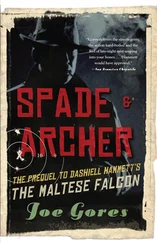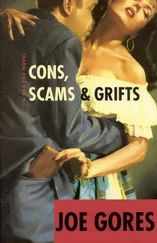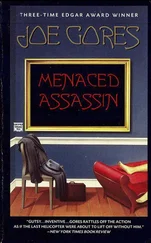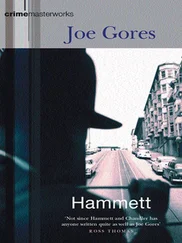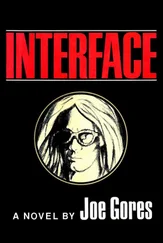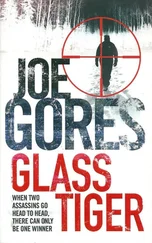“Why do you ask?”
Giselle just shook her head and drank her Chablis, appalled at herself. She changed the subject yet again.
“Dirty Harry also said that some heavy-duty bad-guy Gyppos have been moving in from New York and Chicago...”
Ballard’s momentary irritation seemed forgotten. “That fits, too. My informant said Rudolph had just hit town. She’s never seen him, doesn’t even know his last name, but—”
Again, Giselle couldn’t stop herself. “She says.”
“Why would she lie?” He licked foam from his upper lip and started trying to connect up the dots, one of the main hazards of the detective game — the irresistible urge to make all the data you had somehow fit together. “Think this Rudolph character could be Angelo Grimaldi?”
“Why not? Anyway, I’ll check registrations for the Grimaldi name at the top hotels in town. If he is setting up some elaborate scam, it’ll be timed to the President’s visit...”
“Yeah. The cops’ll be too busy on security and crowd control to check out every con game in town.”
Giselle had finished her wine. She leaned toward him.
“I’ve already talked with Danny McBain at Jack Olwen Cadillac about Grimaldi’s specially built limo. He said—”
“Specially built how?”
“Jack didn’t know, the work was done by an outfit down in L.A. I’ve got a call in to them now.”
“What was his description of Grimaldi?”
“Same as the bank’s. Tall, lean, soulful eyes...”
“Man of my dreams.” He added, a bit distractedly, “What’s the third thing Harry told you about?”
Giselle started to tell him, then pulled herself up short. Uh-uh. She’d always thought the competition between field men for the best monthly recovery record was childish macho nonsense, but now she understood the rivalry. When you were on the street, you wanted to be the best on the street. And who knew what Larry might pass on to his little Gypsy bimbo...
No, the Eldorado, though only a tenuous lead, was her lead, she wasn’t going to...
Who was she kidding? She wasn’t going to tell him about the 1958 pink convertible the Gyps might have snatched in Palm Springs for only one reason: because Ballard wasn’t going to cop to his Gyppo crystal-gazer. It was simple as that.
She said, “Jane Goldson gave me a message for you. A woman. Wouldn’t leave her name.”
Ballard made impatient gimme-gimme gestures. When she stayed silent, he burst out, “Jesus Christ, Giselle, what the hell is it with you tonight? Every time I—”
“ ‘Rainbird Lounge. Tonight.’ That was it.”
It seemed hardly enough, but Ballard started grinning from
ear to ear, that same foolish Tom-Sawyer-about-Becky Thatcher kind of grin he’d used a minute ago.
“I’ll be damned,” he said softly, “she came through.” To Giselle’s cynically raised eyebrows, he added abruptly, “Yeah, her. Yana. Madame Miseria. My crystal-ball gazer from three years ago. My Gypsy informant. The one I paid a hundred bucks to this afternoon. There. You happy now?”
“You paid her one hundred dollars on the come?” The office manager in Giselle was genuinely offended at the idea of $100 being given to anyone — let alone some Gyppo princess — for information not only not tested for accuracy but not yet even received. “I suppose you think one of the Caddies will be parked outside the Rainbird with the key in the ignition and the engine still warm.”
“Something like that, yeah.”
“That’s an Indian bar, you know. American Indian. Indians and Gyppos don’t exactly love each other.”
“O ye of little faith,” he intoned in a pious inflection borrowed from O’B. He seemed to be having the time of his life, which made him very irritating.
She snapped abruptly, “I’m coming with you on this one.”
“Like hell.”
“I want to see the look on your face when there’s no Gyppo Cadillac.”
Ballard was silent for a moment. Then he smiled a slow superior smile. “Tell you what. You pay for the drinks here, and buy me dinner afterward, and you’re on.”
“The hundred dollars broke you, huh?”
“I’ve got three bucks.”
“That’s my Larry. Always a sucker for a woman with more in her bra than in her brain.”
And there was a wonderful thing for Giselle Marc with an MA. in history to say, she thought as they stood up. Quite enough out of you for one night, young lady, thank you very much.
As she scattered paper money across the table to cover their drinks and the tip, Ballard said abruptly, “I’m gonna really enjoy this. Eight lousy months in the field against my eight years, and you think you know all about it. Well, tonight, Giselle, the old maestro’s gonna show you how it’s done.”
The Rainbird Lounge, a neighborhood bar in the flats below Potrero Hill, had been rebuilt along with San Francisco after the Big One of ’06. Then known as a “bucket of blood” to the South of Market Irish who frequented it, it became a speak for the Italians during Prohibition. In World War II it was a joint — the kind you drink in, not the kind you smoke — serving cheap booze to G.I.s being shipped out to the Pacific Theater.
After construction of the James Lick Freeway in the 1950s stubbed off its street into a dead end, it should have folded. But, inspired by the name “Rainbird Lounge,” an alcoholic muralista hoping for free drinks forever — as Benny Bufano was getting free food for his fresco in a Powell Street cafeteria — painted a lurid Custer’s Last Stand across the front of it. Lots of scalped horse soldiers littering the Dakota landscape.
His cirrhotic dreams died with a sale to new owners; but the name and the mural somehow became a draw for Native Americans adrift in the big city. Tribal artifacts traded for bar tabs accumulated to lure more Indians: beadwork, clay pots, kachina dolls, doeskin moccasins, woven blankets, even an antique turquoise and beaten-silver brooch hung from a light fixture.
The Rainbird was a comfy sort of place for those who were regulars, while turning a cold shoulder to outsiders who were not Native Americans. There was sawdust on the floor and a half dozen beat-up tables with mismatched chairs. Over the bar along the right wall was a twelve-inch TV tuned to the sports channel — with the sound off so country music could blare from the old-fashioned jukebox. At the Rainbird, a shot and a beer were a mixed drink, a bag of blue corn chips haute cuisine . Patrons drank heavily and fought often, making abrupt visits from the blues of the Southeast Station at Third and 20th inevitable.
The early-season a’s game on the tube was silenced and the juke was between tunes, so Ballard could hear his entrance cut the babble of voices like ammonia squeaking on a windowpane. Every brown face in the joint turned toward his white one through the silence and pall of smoke and reek of stale beer.
There were only brown faces in the joint.
Ballard leaned across the stick and cleared his throat. “Uh... you sell cigarettes here?” He didn’t want to ask for a drink for fear of getting scalped instead.
The bartender, whose face was right off the old Indian-head nickel, wore a cowboy hat with a burst of feathers on the crown. He jerked a brown thumb toward the rest rooms.
“Machine. Back there.”
Ballard waded through utter silence to the swinging door beyond which were rest rooms, pay phone, cigarette machine. As the door shut behind him, the babble started up again.
Three minutes later, sliding in under the wheel of the company car he’d left parked in the yellow zone outside, he dropped a red and white crush-proof box into Giselle’s lap.
Читать дальше

